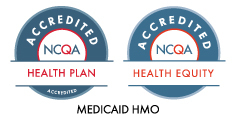Depression screening, Med-Cal renewals + ACE training
Depression in teens: screening and resources
The World Health Organization (WHO) recognizes depression as the leading cause of disability worldwide. A recent CDC report shows that 57% of U.S. teen girls felt persistently sad or hopeless in 2021—double that of boys (29%) and the highest level reported over the past decade.
What tools can providers use to screen for depression?
The Patient Health Questionnaire Modified for Teens (PHQ-9M)® is one of the most recommended tools by organizations such as the American Psychological Association (APA).
There is also a list of common tools for depression screening in the Depression Toolkit on our website. We developed this toolkit specifically for Alliance providers, with information including:
- Symptoms of depression in different populations.
- What to do when a patient becomes tearful or emotional.
- Chronic conditions and risk factors.
- Medications that can have an adverse effect on depression.
Resources
- Members can call Carelon (the Alliance’s behavioral health provider) via their 24/7 toll-free access line: 855-765-9700.
- Providers can call Carelon’s PCP hotline for psychiatric diagnoses and medication support: 877-241-5575 (Monday-Friday 6 a.m. to 5 p.m.).
- If a member needs to talk about urgent mental health concerns related to thoughts of self-harm or suicide, please refer the member to call or text the Suicide and Crisis Lifeline at 988. It is available 24 hours a day in English and Spanish.
For more information and resources, including how to refer Alliance members to behavioral health services, please visit our behavioral health page for providers.
We’re reminding Alliance members: Update your Medi-Cal!
At the Alliance, we are communicating with and supporting members so that they can keep their Medi-Cal. Over 426,000 people across Merced, Monterey and Santa Cruz counties rely on Medi-Cal to receive accessible, quality health care.
If you serve one or more of these communities, we need your help!
How we are communicating with members
The Alliance conducted a media campaign to reach as many of our members as possible. We have also been texting members directly when they have a renewal due to encourage them to return their packet to the county.
Members may also receive a call or a text message within 30 days of being disenrolled to remind them to complete the renewal process.
What you can do
Please help us get the word out about Medi-Cal renewals. Here’s what you can do:
Direct to county Medi-Cal office.
Direct Medi-Cal members to contact their county’s Medi-Cal office to provide any updates to their name, mailing address, phone number, email address or other contact information if it has changed.
Remind members to be on the lookout for a yellow envelope in the mail.
All renewal packets are being sent in yellow envelopes.
Members should complete this packet and return it as soon as possible.
Be on the lookout for renewal information in the Provider Portal.
The renewal date for members with an upcoming renewal has been added to the Provider Portal. If you see this information, please advise the member that their renewal is due and must be completed to maintain coverage.
Please let Medi-Cal members know that they should be careful of renewal scams.
We are letting community members know to only use trusted sources to apply for or renew Medi-Cal coverage. We have posted information about Medi-Cal scams on our website.
Distribute eligibility redetermination flyers to the Medi-Cal members you serve.
These are available to print in English, Spanish and Hmong.
Thank you for supporting this important effort to ensure access to vital health care services in our community!
For more information, visit our member-facing Update Your Medi-Cal page.
Don’t miss these two new ACEs trainings
You’re invited to attend the following trainings on adverse childhood experiences (ACEs).
Educational/care settings training
Safe Spaces: Foundations of Trauma-Informed Practice for Educational and Care Settings
Virtual training, recorded
Access training
- For: Early care and education personnel.
- Length: Approximately 6 hours total (three 2-hour modules).
Complete this free training to learn about responding to trauma and stress in children.
The training focuses on three age groups:
- 0-5.
- 5-11.
- 12-18.
It is offered in both English and Spanish.
The training aims to:
- Increase awareness of the impact of stress and trauma on health, development and learning.
- Teach key mindsets and strategies to respond with trauma-informed principles.
- Help create safe and supportive learning environments.
New webinar series: ACEs and Trauma-Informed Care in Reproductive Health
For: Sexual and reproductive health care teams.
Length: 3-part webinar series starting August 16.
The series will:
- Provide the fundamentals about ACEs and trauma-informed care.
- Share practical tips and tools for sexual and reproductive health care settings.
- Facilitate thought-provoking discussion with practitioners who are actively engaged in this work.
Part one: Fundamentals and Priorities in the Field
Virtual training (live and recorded)
August 16, 2023 from noon to 1 p.m.
Register
This webinar will provide a foundation of simple practice shifts and a discussion with Amanda Williams, MD, MPH. Topics include:
- Health equity and mental health.
- Lessons learned from rolling out perinatal ACE screening in a large health system.
- How and why Dr. Williams centers her own well-being while working to advance reproductive justice.



